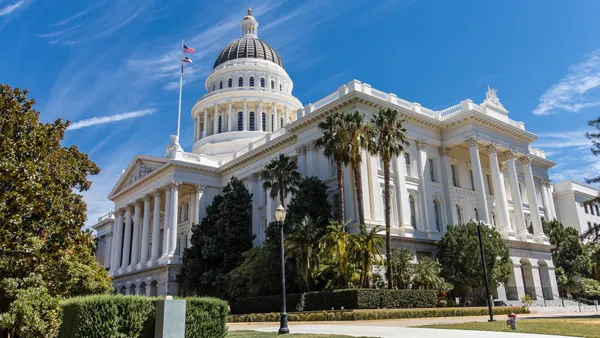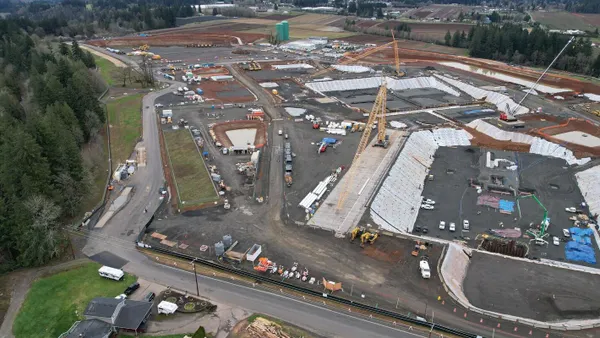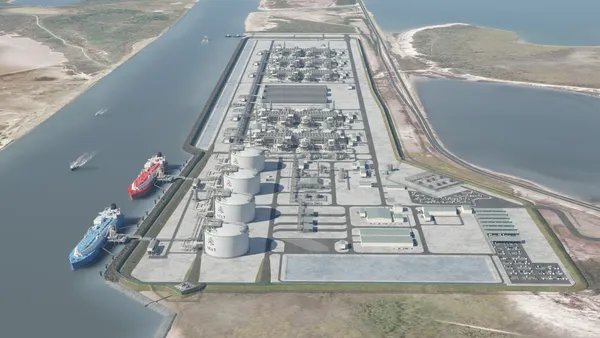Dive Brief:
- New York's prevailing wage laws have been expanded to include private projects worth $5 million or more and that have received public subsidies of at least 30% of total construction costs, as part of the FY 2021 Enacted Budget that New York Gov. Andrew Cuomo signed into law on April 3.
- The definition of public subsidy includes direct or indirect payments by a public entity to contractors, subcontractors, developers or owners that do not have to be repaid; savings from fees, rents, interest rates, other loan costs or insurance costs that are below market rate; savings from tax credits, tax abatements, tax exemptions, tax increment financing and payments in lieu of taxes; any other cost savings due to the involvement of a public entity; and loans that are to be repaid on a contingent basis, as well as credits against loan repayments or other obligations. There are exemptions such as tax credits for brownfield remediation and redevelopment.
- Projects not covered under the new regulations include owner-occupied single- or two-family dwellings; properties limited to four dwellings; certain not-for-profit projects; construction work performed under select, pre-hire collective-bargaining agreements; projects funded by the state's Urban Development Corporation Act or Downtown Revitalization Initiative; and certain school, historic and renewable energy projects.
Dive Insight:
According to the New York State Department of Labor, there are two categories of construction prevailing wages — those for residential and those for general construction. Each county issues its own schedule of rates. For example, the prevailing wage for a carpenter working heavy and highway projects in New York County, which covers the borough of Manhattan, is as high as $54.68 per hour, not including benefits. A worker in the same position in Erie County, New York, which includes the city of Buffalo, earns a base hourly wage of $34.60.
There are varying opinions in New York's building community as to whether the move to increase the number of projects subject to prevailing wage will hurt or hinder development. The wage rates in union-led project labor agreements (PLAs) are set at prevailing wage rates or higher.
One employer organization, however, sees it differently. In a media statement sent to Construction Dive, the Associated Builders And Contractors – Empire State Chapter called the budget process in New York state "opaque," and said legislators were "stomping on our recovery," given the current economic challenges presented by the coronavirus.
All New York state businesses that are considered nonessential have been ordered closed, and all but emergency construction has been put on pause.
"Our economy is reeling," the association said. "It will need to be rebuilt. That requires a COVID-19 pandemic development climate and less onerous rules and regulations. Instead, by requiring builders that receive some form of public support to pay unregulated prevailing wages and benefits, the Senate and Assembly majorities just made that task harder."
Private developers will take their projects elsewhere, the association said, just as they did when the city of Yonkers in Westchester County, New York, and Ulster County, New York, when those jurisdictions attempted to implement similar wage policies.













